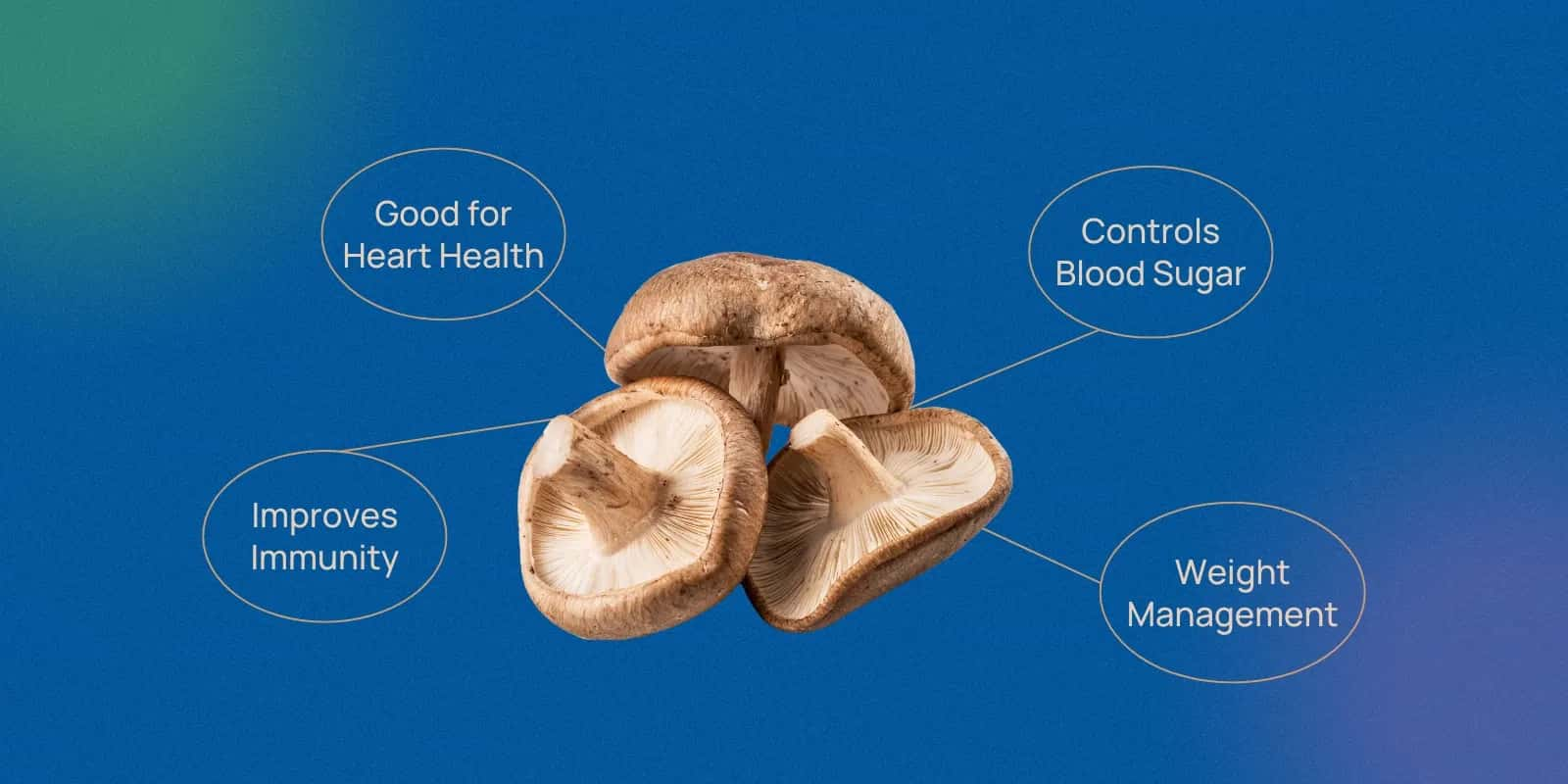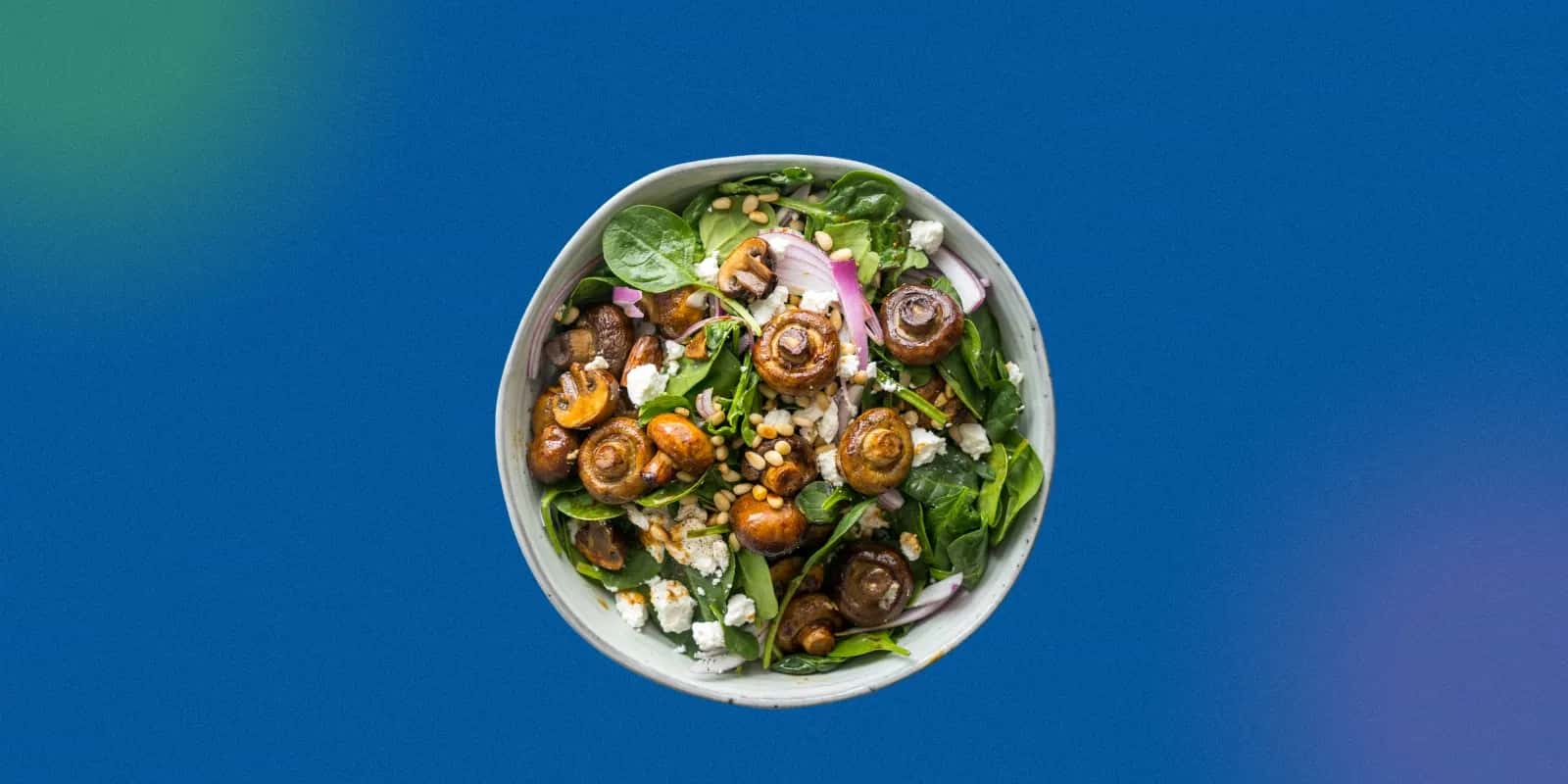Mushrooms: Nature’s Secret Ally in Diabetes Control and Management

Introduction
Diabetes is a silent killer and has been a global issue for a long time. Food is one of the main factors that impact blood sugar levels. Among all the foods being researched, mushrooms have earned a spot as an easy-to-consume, inexpensive, widely accessible, naturally low-calorie, and nutrient-dense food.
What makes them specifically good for people with diabetes? Let's take a look at why mushrooms may be one of the best-kept secrets in nature for managing diabetes.
Mushrooms and Diabetes Control
People often mistake mushrooms for vegetables, but they’re not vegetables or fruits; they fall into the category of fungi. Mushrooms offer numerous benefits in regulating blood sugar levels. With their fibre, antioxidants, and beta-glucans, mushrooms can slow down sugar absorption in the bloodstream, thereby avoiding spikes.
Mushrooms also have a low glycaemic index, which limits the spike in blood sugar levels post-consumption. This makes them an excellent option for people who need to control or manage type 2 diabetes. Along with a low GI, mushrooms are also:
-
Low in calories
-
Fat-free
-
Cholesterol-free
-
Packed with B vitamins and minerals like potassium, selenium, and copper
Including mushrooms in a diabetic meal plan from time to time has been shown to improve metabolic function, assist in weight control, and help with insulin resistance.
Mushroom Varieties That Aid in Diabetes Control
All edible mushrooms have various health benefits. While most are good for your health, only a few varieties can be considered for their specific properties related to diabetes control.
Shiitake Mushrooms
Shiitake mushrooms are a good source of polysaccharides and are rich in antioxidants. It’s a great idea to include them in your diet if your goal is to lower your blood sugar and cholesterol levels. Another plus point is that Shiitake Mushrooms have potent anti-inflammatory properties that help reduce inflammation in your body and prevent other diabetic complications.
Maitake Mushrooms
Maitake Mushrooms are best known for their special type of D-fraction component. Researchers studied the effects of these mushrooms on animals and observed that they support improvements in insulin sensitivity and glucose tolerance.
Reishi Mushrooms
These are classified as a functional food used in traditional herbal medicine. They are a natural source of ganoderic acids and triterpenoids, which could help lower blood sugar levels and have a hypoglycaemic effect on modulating the immune system.
White Button Mushrooms
The most available and widely consumed edible mushroom is the white button mushroom. They are a natural source of ergothioneine, a potential antioxidant that helps reduce inflammation and regulate blood sugar levels.

Using Mushrooms in Your Diet
Mushrooms are incredibly versatile and can be used in cooking in many different ways. There is no limit to when or how many mushrooms you can eat; they can easily be incorporated into any meal, including specialised diabetic meal plans, whether it's breakfast, lunch, or dinner. Listed below are several simple and tasty ways to add mushrooms to your diet:
-
Grilled or sautéed mushrooms make an excellent topping for salads or whole-grain toast.
-
Add to soups, stir-fries, or curries as a source of nutrition and flavour.
-
Stuff mushrooms with legumes or low-fat paneer cheese to make a protein-filled snack.
-
Use mushrooms in pasta sauces, paired with whole-grain noodles or zucchini noodles, for a low-calorie lunch or dinner.
-
Dried and powdered medicinal mushrooms, such as Reishi and Lion’s Mane, can also be used in smoothies or teas. However, always consult your doctor before incorporating them into your daily routine as supplements.
Pro tip: Eating mushrooms with other low-GI foods, like whole grains, legumes, or leafy greens, would not only help you manage your weight but also stabilise your blood sugar levels.
Can You Eat Raw Mushrooms?
Mushrooms are phenomenal when it comes to being a nutritional powerhouse. But, as much beneficial as they are, it’s dangerous to eat them raw as they can cause an unwanted reaction, especially for someone who has diabetes.
Many of the mushrooms available contain small amounts of toxins, such as agaritine, which are usually destroyed or neutralised by cooking but are harmful to health otherwise.
In addition to destroying harmful aspects of the mushroom, cooking mushrooms:
-
Improves the absorption of nutrients
-
Enhances the texture and flavour
-
Reduces digestive discomfort
Regardless of whether you grill, sauté, bake, or eat mushrooms in some other cooked form, they will be as healthy as possible and be devoid of most of their toxicity.

Science Behind Mushrooms and the Glycemic Index
When selecting foods that are beneficial for diabetes management, the glycemic index (GI) is a crucial factor to consider. GI is a way to classify foods based on their potential to increase blood sugar levels after you eat them. Low GI foods are digested more slowly and don’t spike your glucose levels immediately.
It may be hard to believe, but the GI of mushrooms is close to zero. Yes, really! Since they contain such a small amount of carbohydrates, they don’t raise your glucose levels. This is another reason why mushrooms are popular amongst diabetics and fitness-conscious people.
In fact, there is evidence that eating low-GI foods such as mushrooms can:
-
Lower HbA1c
-
Increase insulin sensitivity
-
Promote weight loss
With a low glycaemic index, mushrooms can still provide energy without spiking glucose levels, a win-win for any diabetic patient.
Possible Side Effects of Eating Mushrooms
For most individuals, mushrooms are safe and healthy but there are some minor possible issues if you consume too many or spoiled mushrooms:
-
Consuming mushrooms in large quantities can cause digestive issues, such as gas and bloating. If you have a sensitive gut, then eat them in moderation to avoid any discomfort or an upset stomach.
-
Eating mushrooms can also lead to possible allergic reactions in certain individuals; it’s rare, but still possible.
-
Mushrooms can be potentially toxic if you eat them wild or raw.
If you want to include mushrooms in your regular diet, then source them from reputable places and don’t go foraging for them unless a trained expert guides you.
Pregnant women and nursing mothers should consult their doctor before taking medicinal mushroom supplements or using medicinal mushrooms. Individuals taking medications of any kind should consult their doctor as well to avoid any harmful interactions.
Conclusion
Adding mushrooms to your diet is more than a culinary enhancement; it’s a scientifically backed way to manage blood sugar and improve your overall health naturally.
Mushrooms are low in calories, high in fibre, and have a very low glycaemic index, offering a distinctive combination of health benefits that only few foods can provide.
If you’re recently diagnosed or simply trying to eat better, eating mushrooms is a smart choice that can change your lifestyle for the better.
Just remember to prepare them correctly, choose the right mushrooms, and always include them as part of a balanced, whole-food-based meal plan. Consult a doctor right away if you have a reaction.

FAQs
Q. How do mushrooms help manage blood sugar levels?
A. Mushrooms are low in carbs and high in fibre, which slows glucose absorption and regulates blood sugar levels.
Q. Which type of mushrooms are best for diabetics?
A. Mushrooms such as shiitake, maitake, reishi, and white button mushrooms are great for maintaining healthy blood sugar and insulin levels.
Q. Can mushrooms be included in a diabetic meal plan daily?
A. Yes, mushrooms can be eaten daily when cooked correctly as part of a balanced, diabetic-friendly diet.
Q. Do mushrooms have a low glycaemic index?
A. Yes, mushrooms have a very low glycaemic index, so they’ll not spike your blood sugar levels.
Q. Are there any side effects of eating mushrooms regularly?
A. Eating mushrooms is safe, but only when you eat them in moderation and cook them properly. Avoid eating raw or undercooked mushrooms, as they can negatively impact on your health.

5 Healthy Benefits of Drinking Aloe Vera and Amla Juice Daily

7 Diabetes-Friendly Fruits for Diabetic Patients

7 Surprising Benefits of Cherimoya (Custard Apple) and Its Nutritional Value

7 Quick Remedies for Indigestion

18 Best Protein Sources for Vegans and Vegetarians


